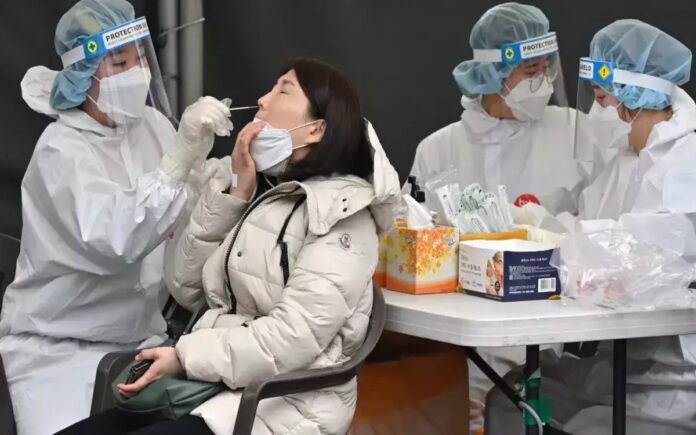Seoul: South Korea’s medical association raised alarms on Friday over a potential crisis in hospital emergency rooms as COVID-19 cases continue to rise, compounded by an ongoing strike by trainee doctors. The situation could worsen in the coming weeks as many doctors are expected to be off duty due to the Chuseok public holiday.
Despite these warnings, the government has contested the likelihood of widespread ER closures. Officials insist that measures are being taken to provide additional support where necessary to prevent disruptions in critical healthcare services.
The strike, which began in February, involves thousands of trainee doctors, including interns and residents. They are protesting against a government proposal to increase the number of medical students by 2,000 annually. Authorities argue that this expansion is essential to address an impending shortage of doctors in the country.
Hospitals that depend heavily on trainee doctors have been particularly affected. Emergency rooms are facing significant challenges, with some facilities forced to turn away patients due to staffing shortages. Existing medical staff have been under increased pressure to handle the workload, the government confirmed.
The Korean Medical Association (KMA), representing practicing doctors, has expressed deep concern over the resignations of emergency room physicians at university hospitals. The combination of overwork and fear of malpractice lawsuits, intensified by exhaustion, has led to a growing exodus of medical professionals from ER departments.
“In September, as the wave of COVID-19 cases peaks, there will be a surge in patient numbers,” warned KMA spokesman Chae Dong-young during a briefing. “This coincides with the Chuseok holiday, a time when many doctors in essential disciplines will be on leave, likely leading to a serial shutdown of emergency rooms.”
Also Read | Taliban Enforces Severe Restrictions on Afghan Women, Mandates Face Veils and Silence
Chuseok is a major South Korean holiday celebrated over three days in the autumn, during which many people travel and take time off, including healthcare professionals.
The Ministry of Health acknowledged that certain emergency rooms have required additional support, which has been provided through military or community doctors. However, they rejected the KMA’s prediction of widespread ER shutdowns, maintaining that the situation remains manageable.
Also Read | Russian Ambassador Vows Putin Will Retaliate for Ukrainian Incursion in Kursk
While COVID-19 cases have surged in recent weeks, the health ministry noted that over 95% of patients visiting emergency rooms are experiencing conditions that could be treated at clinics instead.
To address the crisis, the government has introduced a medical reform plan. This proposal includes offering incentives to encourage doctors to specialize in essential disciplines and practice in regions outside Seoul and other large cities. Additionally, the government is considering increasing the cost of emergency room services for non-acute conditions, in an effort to reduce the strain on ERs.



